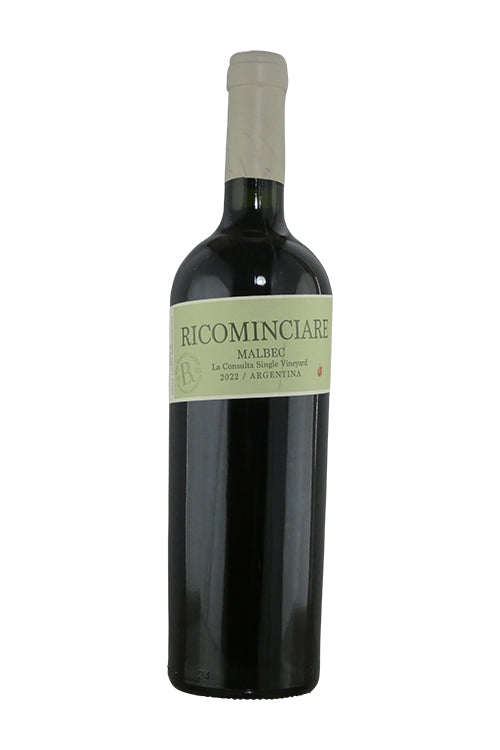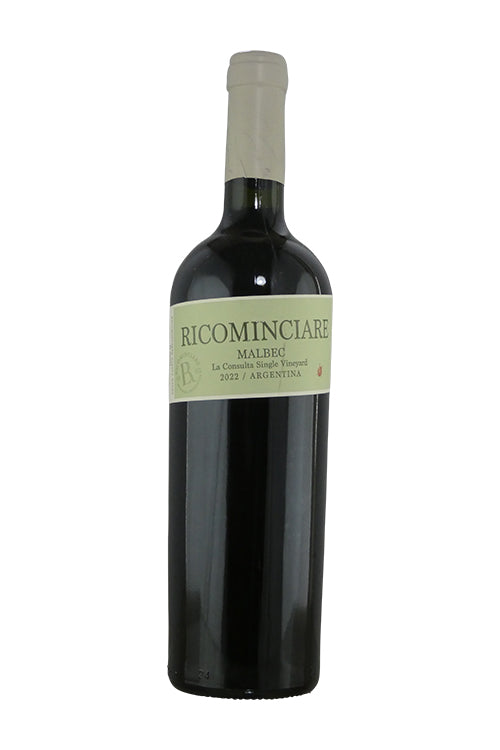1
/
of
1
Ricominciare Malbec - 2022 (750ml)
Ricominciare Malbec - 2022 (750ml)
Regular price
$14.99
Sale price
$14.99
Regular price
$19.99
Unit price
/
per
Share :

- varietal
- Region
- Sub - Region
- Type
- Reviews
Grown mostly in South America, its popularity has made it almost synonymous with Argentina, the wine producing powerhouse which has now adopted the varietal as it's national grape. While many offer bursting juicy fruit including blackberries, cherries, and plums, the grape is also capable of extended oak-ageing adding spice box, tobacco and leather aromas, as well as a richer texture on the pallate. Originally a vineyard neighbor alongside Carmenere (another French expat) in Bordeaux, Malbec is mostly planted in the neighboring regions of south west France. The town of Cahor, just north east of Bordeaux, is probably the varietals most important region in the country, where it's required to make up at least 70% of the blend. Although a simplification, French versions tend to be drier and more tannic, however they can still display great concentration and depth.
Mendoza is Argentina’s most important wine region, responsible for two-thirds of the country’s overall wine production. Located on the eastern side of the Andes Mountains along the Chilean border, vineyards in Mendoza are grown in some of the highest altitudes in the world. Mendoza did not play a significant role in the wine industry until the late 19th century when an immigration trend brought large amounts of Southern Europeans with significant wine knowledge to the region. This elevated Mendoza to world-wide recognition and established it as the fifth largest wine region in the world. While Malbec grows exceptionally well in this region, Mendoza in also known for producing Tempranillo, Cabernet Sauvignon, Chardonnay and Torrontés.
NULL
Red wine is wine made from dark-coloured grape varieties. The color of red differs based on the grapes variety or varieties used.Interestingly, black grapes yield a juice that is greenish-white. The actual red color comes from anthocyan pigments (also called anthocyanins) from the skin of the grape (exceptions are the relatively uncommon teinturier varieties, which produce a red colored juice). Most of the production centers around the extraction of color and flavor from the grape skin.


